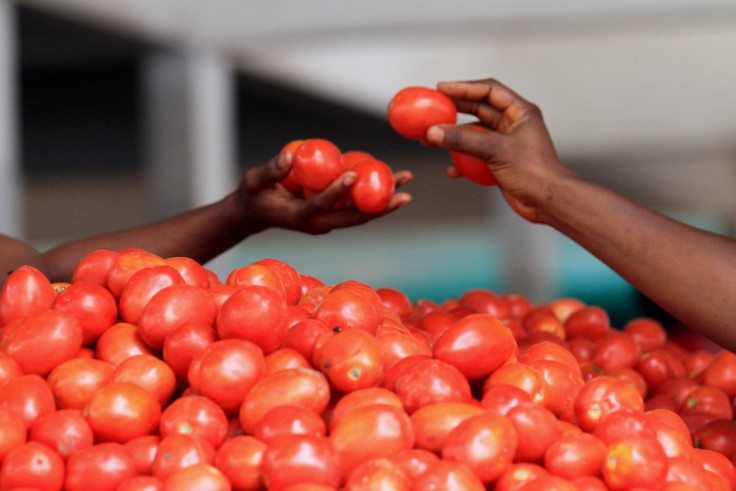“Food prices will double by 2030”, Oxfam new reports warns

Just a few days after the 2011 G8 summit in Deauville, Oxfam warns that the prices of staple foods will more than double in 20 years unless world leaders take action to reform the global food system.
According to the organisation's forecast, by 2030, the average cost of key crops will increase by between 120% and 180% and insists that half of that increase will be caused by climate change.
In its newly published report, "Growing a better future", the charity calls on world leaders to improve regulation of food markets and invest in a global climate fund.
"The food system must be overhauled if we are to overcome the increasingly pressing challenges of climate change, spiralling food prices and the scarcity of land, water and energy," said Barbara Stocking, Oxfam's chief executive.
She added, "We are sleepwalking towards an avoidable age of crisis. One in seven people on the planet go hungry every day despite the fact that the world is capable of feeding everyone. The food system must be overhauled if we are to overcome the increasingly pressing challenges of climate change, spiralling food prices and the scarcity of land, water and energy. We must consign hunger to history."
In its report, Oxfam highlights four "food insecurity hotspots" areas which are already struggling to feed their citizens.
It warns that in "Guatemala, 865,000 people are at risk of food insecurity, due to a lack of state investment in smallholder farmers, who are highly dependent on imported food." The report also stresses the critical situation in India where "people spend more than twice the proportion of their income on food than UK residents - paying the equivalent of £10 for a litre of milk and £6 for a kilo of rice." Azerbaijan is another food insecurity hotspot as" wheat production fell 33% last year due to poor weather, forcing the country to import grains from Russia and Kazakhstan. Food prices were 20% higher in December 2010 than the same month in 2009", while East Africa closes the list with an estimated, eight million people currently facing chronic food shortages due to drought, with women and children among the hardest hit.
The World Bank, backing the Oxfam report, has also warned that rising food prices are pushing millions of people into extreme poverty.
The charity thus calls for nations to agree new rules to govern food markets in order to ensure the poorest do not go hungry. Its main demands are for leaders to, "increase transparency in commodities markets and regulate futures markets, scale up food reserves, end policies promoting biofuels and invest in smallholder farmers, especially women."
As Oxfam finds that climate change will be the most serious factor in driving food prices to rise the group wants world leaders to launch a global climate fund, ahead of a UN climate conference in South Africa, "so that people can protect themselves from the impacts of climate change and are better equipped to grow the food they need".
The report predicts that the average price of staple foods will more than double in the next 20 years, while the world's poorest people, who spend up to 80% of their income of food, being hit the hardest. It added that the world is entering an era of permanent food crisis, which is likely to be accompanied by political unrest and will require radical reform of the international food system.
After decades of steady decline in the number of hungry people around the world, the trend has now reversed and numbers are rapidly increasing as demand exceeds food production and the average growth rate in agricultural yields has almost halved since 1990 and is set to decline to a fraction of 1% in the next decade.
Oxfam called on British Prime Minister, David Cameron, and other G20 leaders to agree to new rules to govern food markets. The organisation wants greater regulation of commodities markets to limit instability in prices. It also warns that global food reserves must be urgently increased and western governments must end biofuels policies that divert food to fuel for cars. It also attacked excessive corporate concentration in the food sector, particularly in grain trading and in seed and agrochemicals fields.
"Greater investment is needed in the 500 million small farms, and the farmers who cultivate them - especially women - who are often overlooked but who are the single biggest opportunity to boost food production. The UK government and others meeting at the UN climate change summit in Durban in December must get the global climate fund up and running so that people can protect themselves from the impacts of climate change and are better equipped to grow the food they need.
"The private sector must also shift to a business model where profit does not come at the expense of poor producers, consumers and the environment."
Following the publication of the report, Former President Lula of Brazil said: "We can't wait anymore. Political leaders and global companies must act now to ensure that all people can put food on their table. There are no excuses. We have the capacity to feed everyone on the planet now and in the future. If the political will is there, no one will be denied their fundamental human right to be free from hunger."
© Copyright IBTimes 2025. All rights reserved.





















